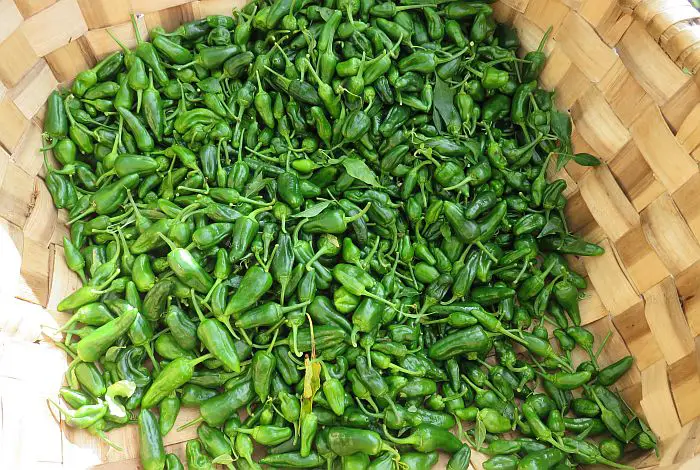The Way of the Octopus in Galicia
Story and photos by Beebe Bahrami
Pilgrimage and pulpo take the author on a many-armed adventure into kindness and the unexpected along the sacred landscape and coastline of northwestern Spain

A man in a charcoal-colored cable-knit sweater, gray trousers, and green rubber boots appeared through the thick curtain of fog. In his hand, a clear plastic bag weighed down with two small pink-purple-grey octopuses the size of grapefruits.
The two looked as if in a dream, slung back on a hammock on a Caribbean isle. As the man drew nearer, two things became certain. His eyes were indeed the same color as his sweater, and the slightly pungent fish-and-sea-spray scent that arrived with his parting of the fog meant he had just returned from a pre-dawn fishing trip in the Atlantic a few meters to our right.
If I had stuck my tongue out in that moment, the air would have tasted like sushi. But I did not. I more politely sucked in a bit of breath, for other reasons and not intending to taste, but there it was, sashimi fresh.
I was preparing my foggy early morning mind for a multilingual conversation. Miles and I were standing at sunrise in early spring at this seaside destination in the off-season, waiting and listening to the languid slurping of the great body of water against this remote shore in Galicia, in northwestern Spain. It was uncharacteristically calm for a stretch of coastline with jagged rocks and turbulent storms, called for these reasons the Costa da Morte: the Coast of Death.

“This is where bus stops, yes?” I asked. I was still doubtful that the big grey granite boulder on the grassy bank of the one-lane road on the edge of the village of Corrubedo, where we’d spent the night, was really the place a bus would stop. But our host had pointed from her front door to right here.
“Yes, it is,” he said cheerfully in a mix of Castilian and Gallego, the Romance language of Galicia closer to Portuguese than Spanish. “The bus should be here any moment.”
“Are you going to Noia or to Santiago?” I asked, which to his ear sounded like this: Are you going to Noah or to Saint James?
We were waiting for a bus to the Old and New Testaments while standing in a shroud of fog. For all we knew, Jonah and his whale were about to lap up against the coast as well. Noia, some 37 kilometers north, was the fabled place where Noah anchored his ark and sent off the dove that returned with an olive branch. Armenians off in Ararat would have issue with this, but Galicia exists in its own world on its own terms and has done so ever since the Romans first tried to infiltrate the mountainous and remote coastal region two millennia ago. Before then, it was Celtic-speaking, native, and isolated but for the ocean, a great highway in its own right.
And Santiago de Compostela, 75 kilometers to the northeast, was the famous pilgrimage city and purported resting place of Saint James, where he was buried soon after his martyrdom two thousand years ago in the Holy Land far away. From Palestine he arrived in the town of Padrón, 48 kilometers away and also to the northeast of us, guided by angels in a rudderless boat made of the very gray granite of the rock to my side. It’s a miracle.
“Neither,” the fisherman chuckled. “I’m delivering these to the driver. He gestured to the octopuses. “I promised him fresh ones for lunch. He’s married to my sister.”
That last bit seemed to be offered to explain why he would bother standing in the fog at dawn just after getting off his all-night fishing boat to hand off octopus.

Eight Legs, Three Hearts, Two Eyes
Like this land, they are mythic creatures, ones that people painted on ancient clay vessels from Mediterranean civilizations that date back some four and five thousand years ago. Our relationship with octopuses probably goes back much further, when we were semi-nomadic hunters and gathers and some skilled prehistoric fisherman or fisherwoman ventured into coastal waters and snagged one. The three-hearted, eight-legged, silky octopus is otherworldly to our bipedal, one-hearted, dry, land-bound and hairy world. But that they have two eyes as we do, and they look at us, we seem to think, with the same curiosity as we look at them, adds to their mystique.
Though octopus inhabit the oceans of the world, Galicia is synonymous with octopus, both for its 1,500 kilometers of craggy coastline and waters rich with Octopus vulgaris—the common octopus—and also for how the locals cook the creature. The dish is called pulpo á feira, the meat boiled until tender and then the legs cut into disks with kitchen sheers and arrayed on a wooden plate and seasoned with Spanish paprika and sea salt and doused with olive oil.
Ironically, as much as Spain is a massive exporter of fish, including octopus, it is an even more massive importer; the Spanish appetite for fish and seafood exceeds almost any other nation. But here on the coast, when you have a fisherman for a brother-in-law, you get your octopus local, direct, and fresh. Of course, if you get your pulpo live, you have to know how to kill it. Those getting the exported goods—frozen is best as it acts as a tenderizer—are spared this ordeal.
Would the bus driver or his wife give these two the kiss—a bite placed between the eyes that severs instantly a large nerve and kills on the spot—or would they use the special spike designed to thrust through the mouth into the body, rendering an almost as instant death? And once dead, their lean, fibrous muscles would have to be tenderized. Penelope Casas, in her book Tapas, advises throwing the octopus against a hard surface, such as the kitchen sink or a rock, about ten times.
Train Jumping in Galicia
“And what are you doing here?” asked the octopus man.
“We’re heading to Santiago de Compostela,” I said.
“You didn’t come by bus,” he said more than asked. Buses didn’t run that often here.
“No, we walked.”
“But why?”
We were coming up from northern Portugal, I told him, heading to Santiago, but felt compelled, upon seeing the coastline, to get off in Padrón. Padrón, right? Where Saint James first arrived, right? But by the time we put all this together, the train had begun to move, so we ran to the door, threw it open, and jumped with our packs before it had picked up too much more steam.
He chuckled. Saint James’ boat 2,000 years ago did after all first alight upon this coastline before his disciples took his dead body to Compostela to bury it. Fishermen seek fishermen. And we were falling in love with the fishing culture of Galicia.
In Padrón, we’d both landed reasonably well but were blasted from behind by a sudden, explosive, “¡coños!” from the train conductor. I turned in time to see him pumping his arm as he clung with the other arm to the train’s open door, moving into the distance and growing smaller by the second. A familiar Spanish expletive, coño is often used in daily speech and has many intonations meaning anything from sweetheart to asshole. We were at the asshole end of the spectrum and he was in the right.
As we knocked the dust off of the hems of our pants, fully alert from the adrenalin rush of the leap, details from our surroundings saturated my senses—the dusk sky striated with streaks of light blue, rose, and violet; the fresh dewy air against my cheek laced with the scent of pine resin from the nearby forest; the sizzle of potatoes frying in someone kitchen nearby in glistening olive oil, and something else, something new, the piquant Russian-roulette-like bite of little green peppers, pimientos de Padrón, where one or two in every ten was hot and the rest sweet. We walked into town.

At the end of the railway street we found ourselves a room in an inn where the matriarch stood in her garden waiting for us, the only people coming from the train that night. She showed us our room.
“After you settle in,” she said, “it will be dinnertime. Take that road,” she pointed straight ahead, “and turn left and you’ll see a crowded bar. Go in and be sure to try the pulpo.”
We followed her directions to a crowded pub where we found the last free table—an old sawed off tree trunk table with two tree-stump chairs—and ordered what everyone else was having.
Copyright (C) Perceptive Travel 2018. All rights reserved.
- Moving Beyond the Bullet Holes in Bosnia and Herzegovina by Tim Leffel
- Finding my Way in a Goan Village by Debi Goodwin
- The Dharma Buddies of Auroville by Camille Cusumano
- Travel Book Reviews by Susan Griffith
Books from the Author:

Buy The Spiritual Traveler—Spain: A Guide to Sacred Sites and Pilgrim Routes at your local bookstore, or get it online here:
Amazon

Buy Cafe Oc—A Nomad's Tales of Mystery, Magic, and Finding Home in the Dordogne of Southwestern France at your local bookstore, or get it online here:
Amazon

Buy Cafe Neandertal—Excavating Our Past in One of Europe's Most Ancient Places at your local bookstore, or get it online here:
Amazon

